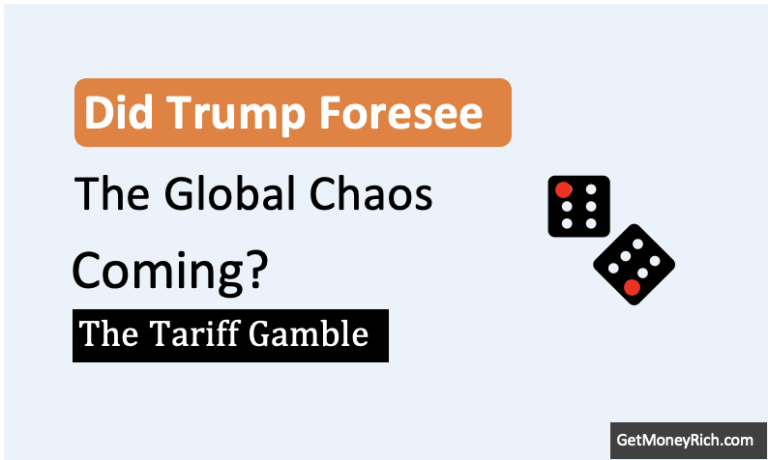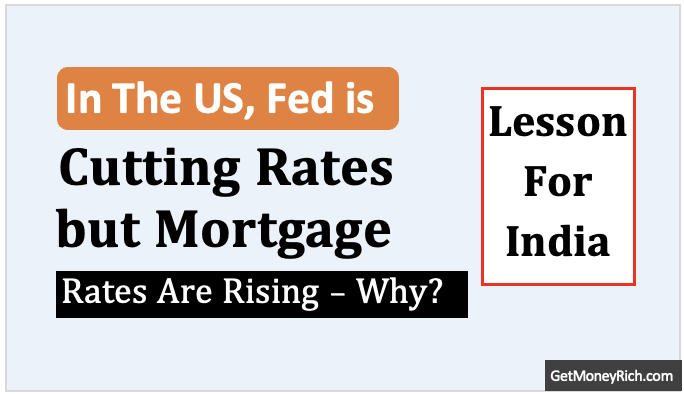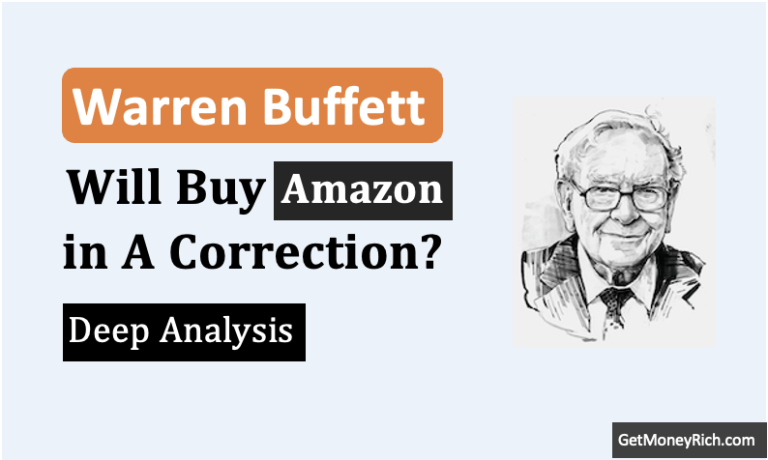Summary:
- Warren Buffett criticizes Trump’s tariffs as harmful “acts of war” that raise consumer prices, disrupt global trade, and create long-term economic inefficiencies, advocating instead for free trade and global cooperation.
Quiz: Do You Think Like Warren Buffett?
Introduction
We all know Warren Buffett. He is an investor and chairman of Berkshire Hathaway. Has been vocal about his concerns regarding former U.S. President Donald Trump’s tariff policies. Buffett has particularly been concerned about those implemented during trade disputes with countries like China, Canada, and Mexico.
His views provide a critical lens on the economic and geopolitical implications of these tariffs.
Let’s explore deeply into the Buffett’s stance on Trump’s Tariffs.
I’ve read his recent statements and analyses to present a comprehensive picture. People who are still confused about the probably effects of Trump’s tariffs, might get clarity reading about how Buffett is thinking about it.
Buffett’s Core Criticism – Tariffs Used as “Acts of War”
Buffett has consistently described tariffs as “acts of war” for the way it has been used by Donald Trump.
This is a phrase he used in multiple interviews and public statements in early 2025.
- For instance, in a CBS interview aired on March 2, 2025, he remarked, “Tariffs are actually, we’ve had a lot of experience with them. They’re an act of war, to some degree” (a cnbc report). This strong language is a proof that his belief that tariffs, intended to protect domestic industries, can escalate into retaliatory measures. It will create a cycle of economic conflict. He also reiterated this view at Berkshire Hathaway’s shareholder meeting on May 3, 2025, stating, “Trade and tariffs ‘can be an act of war,’” and warned of the “bad attitudes” they foster (read this cnbc report).
What Buffett has this kind of perspective about Trump’s tarrifs?
Because it is rooted in his observation that tariffs disrupt the natural flow of global trade. It eventually leade to tensions that can harm international relations.
For example, Trump first announced tariff effective from 04-March-2025. He declared 25% tariffs on imports from Canada and Mexico. They he announced an additional 10% on China. These steps of Trump’s has already prompted retaliatory actions.
China imposed 15% tariffs on U.S. coal and LNG, and 10% on crude oil and agricultural machinery. Canada also vowed swift retaliation.
Buffett’s “act of war” label highlights the potential for such policies to spiral into broader conflicts between nations. This is a concern that many economists share across the world.
Trump’s Actions Will Benefit The Consumers?
A central pillar of Buffett’s critique is that tariffs are effectively a tax on goods, and this burden falls squarely on consumers.
In the same CBS interview, he noted, “Over time, they are a tax on goods. I mean, the tooth fairy doesn’t pay ‘em” (read more here).
This means that when tariffs raise the cost of imported goods, businesses pass on the extra expense to shoppers. This eventually makes everyday items like electronics, clothing, or even food more expensive.
For instance, if a tariff is imposed on Chinese-made smartphones, the price at the store goes up, and consumers feel the pinch.
Buffett’s view is supported by Peterson Institute for International Economics, which predicted that Trump’s tariffs would raise the cost of everyday goods. Buffett’s warning is particularly relevant as the U.S. economy contracted in the first quarter of 2025. The businesses are rushing to avoid new tariffs, creating uncertainty and disruption across supply chains. For consumers, this translates to higher prices, potentially fueling inflation, a concern Buffett has repeatedly highlighted.
Long-Term Consequences
Buffett’s analysis extends beyond immediate impacts. He is also worried about the long-term effects of tariffs.
In an interview with The New York Times on March 3, 2025, he stated, “Prices will be higher 10 years from now, 20 years from now, 30 years from now” (read here).
This prediction is based on his understanding that tariffs disrupt global supply chains. It also forces companies to find new suppliers and sometimes, also adjust production. These types of adjustments creates inefficiencies in the market which leads to sustained higher costs that ripple through the economy for decades.
Now, we (say in India) may think that the concern of rising prices is in USA, so we should not worry. But these days, our world is too interconnected.
For example, if U.S. companies face higher costs for imported components due to tariffs, they may raise prices on finished goods. This will affect not just American consumers but also export markets, including India.
Buffett’s foresight here is a reminder that economic policies have far-reaching. The actions that’s taken today has lasting impacts.
Advocacy for Free Trade and Opposition to Protectionism
At the heart of Buffett’s critique is his advocacy for free trade.
He believes that countries should specialize in what they do best and trade freely.
Free trade can creat a win-win situation.
At the Berkshire Hathaway shareholder meeting on May 3, 2025, he said, “I do think that the more prosperous the rest of the world becomes, it won’t be at our expense, the more prosperous we’ll become, and the safer we’ll feel, and your children will feel someday.”
This reflects his belief in mutual prosperity through trade, rather than using tariffs as a tool for protectionism.
Warren Buffett say, “We should be looking to trade with the rest of the world. We should do what we do best and they should do what they do best.” This stance contrasts sharply with protectionist policies.
I think, imposing Tariff is a way to isolate an economy. Tariffs works like a resistance to free trade. A little bit of control (Tariffs) may be good but Trump’s Tariff’s feels like unprepared and rampant. It will not execute well.
A Divided Debate
Buffett’s views are not without controversy.
USA had low Tariff environment since many decades. But there are countries who impose huge Tariffs on imports and the are surviving (like Asian countries). The proponents of Trump’s policies are now using this to argue that tariffs protect domestic industries, create jobs, and reduce dependence on foreign goods.
However, Buffett counters that such measures alienate global partners and eventually harm the consumers.
I think, If an economic policy is not going to eventually benefit the consumers, its benefits are questionable. May be, this policy may create a few jobs in next 10-15 years, but over several decades USA will also become like Mexico, Brazil, China, Bangladesh, India, etc. Trump is only thinking about next 4 years (his term as the US’ President). If he can show some positive impacts of Tariff imposition in his term, he can forever boast that he did good. But what its long term impacts?
Buffett’s views are important for Trump
On one side Trump’s supporters view the tariff plan as something good for their country. But on the other hand people like Buffett are not supporting this plan.
So what these people are doing? They are taking help of fake news. For example, a video shared by Trump on Truth Social in April 2025 falsely claimed Buffett praised his economic policies. Berkshire Hathaway quickly denied, stating, “All such reports are false” (read here).
This incident highlights the politicization of Buffett’s views, with some trying to align him with Trump’s agenda, despite his clear opposition.
What Buffett Is Doing
As CEO of Berkshire Hathaway, Buffett has a personal stake in these policies.
His company’s diverse portfolio, including insurance, railroads, and manufacturing, relies on stable global trade. Berkshire’s first-quarter earnings report in 2025 noted that tariffs and geopolitical events created “considerable uncertainty,” unable to predict potential impacts.
This uncertainty is reflected in his actions as well. He has been selling stocks for 10 straight quarters and growing his cash pile to $347 billion by March 2025. I think he is possibly hedging against tariff-related risks.
Conclusion
Warren Buffett’s views on Trump’s tariffs tells us that he is against protectionism.
He sees tariffs as harmful, leading to higher prices for consumers, economic uncertainty, and strained international relationships.
Instead, he advocates for free trade and cooperation, believing that a prosperous global economy benefits all.
His insights, grounded in decades of experience, offer a valuable perspective for anyone interested in the intersection of economics and politics.
What do you think, do you agree with Buffett, or do you see merit in Trump’s tariff strategy?
Share your thoughts in the comment section below. I would love to hear your ideas and reply to it.
Have a happy investing.




![What's India’s Google Tax [Explained] - Thumbnail](https://ourwealthinsights.com/wp-content/uploads/2025/03/Whats-Indias-Google-Tax-Explained-Thumbnail-768x462.png)
